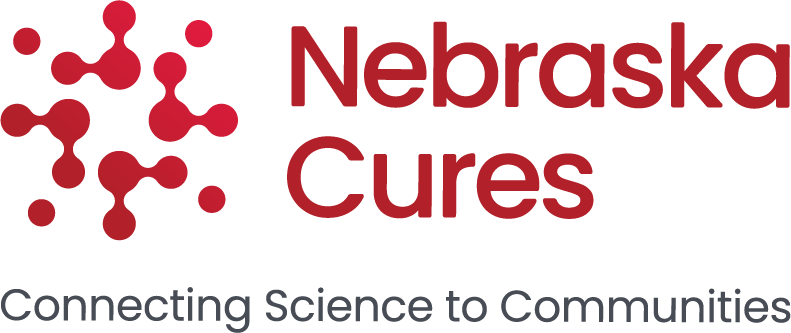by Board President David Crouse, PhD

First, just a reminder. The Mission of The Nebraska Coalition for Lifesaving Cures (Nebraska Cures) is “… to promote, support and advocate for research and education to advance our quality of life and our economy.”; and the Vision of Nebraska Cures is “… to lead society to understand and embrace the importance of scientific research.”
So, just what is “scientific research” and why is it so important? It is generally described as a systematic investigation which starts with a hypothesis (“… a tentative assumption made in order to draw out and test its logical or empirical consequences,” Webster’s Dictionary). The research then goes on to test that hypothesis and produce or uncover new findings (data); draw new understanding from existing data produced by others; or synthesize new hypotheses to advance the subject of the research and ultimately gain knowledge or a better understanding of a particular subject. Of course, scientific research can be conducted in many basic or social science fields as well as clinical science. The basic sciences typically include programs like biochemistry and molecular biology, cell biology, epidemiology, microbiology, immunology, physiology, pharmacology, toxicology and a few other”…ologies”! One usually envisions research in these basic sciences as lab investigations to collect data using observations, animal subjects, cell cultures, molecular approaches, and other sophisticated equipment as well as careful comparative analysis of data from other labs. This then provides the foundation of knowledge that can support applied sciences and clinical research that can follow. By the way, with appropriate regulatory approvals, basic research can be done with human/clinical materials (cells, tissues, etc.). The full scope of basic science research is actually much more complex (Basic Science | AAMC).
When it comes to clinical research, it can be far more complicated because it usually involves people who volunteer as human subjects to help us better understand medicine and health under strict regulatory oversight. Clinical research includes a comprehensive study of the safety and effectiveness of the most promising advances in patient care. Every pharmaceutical, protocol, device, diagnostic tool or test, and technology used in medicine was previously tested in volunteers who took part in clinical research studies (clinical trials). All of these clinical research studies must go through a detailed prior review by an Institutional Review Board (IRB) to assure that human subject research is conducted ethically and that it follows rigorous regulatory guidelines. The research may be of an observational nature to analyze patterns in medical data or in biological samples, or it may be interventional where medical procedures, drugs, or tools are tested in patients or normal subjects. The interventional studies get the most public notice as new drugs and procedures receive media attention, FDA approval and entry into regular practice.
Although the observational approach to research is widely practiced, it is sometimes less understood by the public. Sometimes observational research relies on data that are compiled in public records in various formats. Obviously, access to local, state, and national vital records can be used in some studies. Professional societies or organizations often will set up a common database that collects data related to their common professional concerns. Most states, like the national organizations (NIH, CDC, etc.), collect data for a wide variety of health outcomes. This includes information on maternal and infant mortality, cardiovascular health, immunizations and infections, and a myriad of other data sets. Indeed, in 1982 Nebraska took a crucial step in the fight against cancer by establishing its formal cancer registry. This repository of data on cancer cases, encompassing details such as cancer type, severity, and patient demographics, was envisioned as a vital tool to better understand cancer in Nebraska and ultimately reduce cancer incidence and deaths. Fast forward to the present, and the importance of the registry remains undiminished. Cancer and public health researchers heavily rely on this data to understand trends, pinpoint causes, and gauge the effectiveness of prevention strategies and treatments. Timely access to this data set is crucial to help beat cancer. Unfortunately, access to this data in our Department of Health and Human Services is cumbersome if not actually obstructive on occasion. Researchers in Nebraska often have been forced to resort to using older Nebraska data or current data from other states for their research applications. This delay threatens to hinder our ability to make proven progress in the fight against cancer within our borders. I have heard this kind of research compared to being on a road trip. Knowing where you are on a map is more important than looking in your rearview mirror!
With this as a concerning backdrop, State Senator Brad von Gillern has introduced LB 1172, a legislative initiative that mandates a response to cancer registry data requests within a reasonable eight-week timeframe, while still protecting patient data confidentiality. This proposal, if enacted, stands to alleviate the bottleneck that currently plagues our researchers. It is a resounding call to safeguard our researchers’ ability to conduct invaluable work and, in turn, reduce the burden of cancer within our state. As a final note, there have been similar bottlenecks in data access for other subjects such as maternal and infant immortality and it ultimately will be important to assure access to large data sets beyond the cancer registry.
